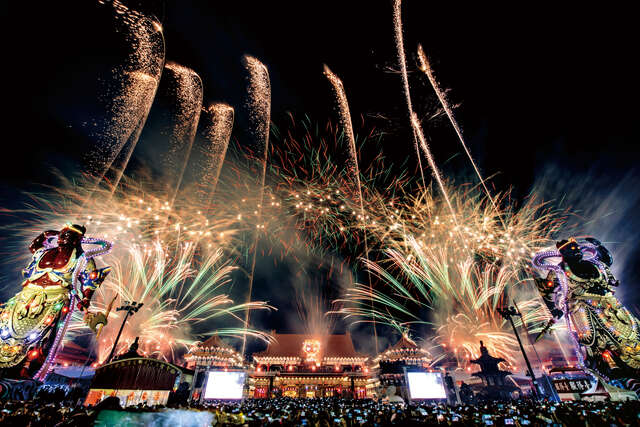Tucheng Zhengtong Luermun Mazu Temple Introduction
Tainan is the birthplace of Taiwan, and the Zhengtong Luermen Holy Mother Temple has its origins dating back to the sixteenth century, constructed to honor Matsu of Luermen. It is the only temple in Taiwan that enshrines the golden statue of Luermen Matsu, which has a history of over 800 years, and is the largest Matsu temple in terms of architectural scale. The temple is currently divided into five halls: the Five Kings Hall, the Matsu Hall, the Buddha Hall, the Great Deity Hall, and the Tian Gong Hall, featuring northern architectural styles modeled after the Zijingcheng Palace. Every year, a series of New Year Carnival events are held starting from the first day of the Lunar New Year, along with a Lantern Festival fireworks display, explosive firecrackers, and the Spring Ox Parade, attracting huge crowds! The activities of Luermen Matsu don’t stop there; on the twenty-third day of the third lunar month, a charity event is held to donate rice to the poor, where people can also enjoy free tasting of milkfish dishes. Additionally, the temple hosts the San Nian Yi Ci (Three-Year Ceremonial Ritual) during the years of the Ox, Dragon, Goat, and Dog. Furthermore, the temple complex includes the Fude Qian, a cultural relic museum, a creative cultural center, and a worshipper building, incorporating elements of culture, tourism, cuisine, leisure, and charity, making Zhengtong Luermen Holy Mother Temple a top tourist destination in the Tainan area.









































